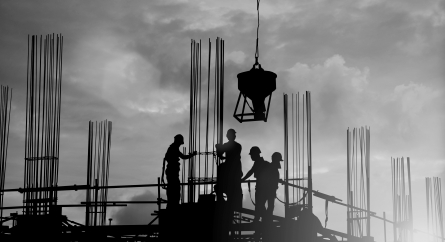Client Alert: Massachusetts Enacts Bill Including Provisions to Address Real Estate Permitting Challenges Posed by COVID-19
Updated: On April 3, 2020, the final bill was signed into law by Governor Baker. The text of the final bill can be found here.
Relief and some certainty is coming to municipalities and real estate developers concerning the municipal approval process and existing municipal approvals.
On Friday, March 27, 2020, the House passed H.4598, An Act to address challenges faced by municipalities and state authorities resulting from COVID-19. On Monday, March 30, 2020, the Senate approved S.2619 with its amendments. The bill is now the subject of further amendment as H.4612.
While the legislation addresses a wide variety of issues particularly focused on challenges faced by local governments, real estate developers and businesses involved in obtaining municipal or other approvals should review the legislation’s impact on the permitting process and extensions of deadlines for existing approvals. Once the House and Senate agree on the final form, Governor Baker will need to sign the law. In its current form, the legislation provides much needed relief for permit holders and applicants, but also extends municipal action dates on filed applications.
In response to the State of Emergency declared on March 10, 2020, the bill provides for:
Ratification of Governor’s Order Suspending Portions of Open Meeting Law
The bill authorizes the conduct of remote public hearings, including remote participation by members of the permitting authority, as set forth in Governor Baker’s March 12, 2020 order entitled ““Order Suspending Certain Provisions of the Open Meeting Law, G.L. c. 30A, § 20.”
Electronic Submission of Applications
During the state of emergency, an applicant for a municipal approval may file an application electronically. It will be deemed accepted as of the date it is filed with and certified as received by the city or town clerk (or secretary or appropriate official for regional or county entities). The application may be submitted through an online portal if available from the permitting authority or by attaching the required forms and supplemental materials to an electronic mail sent to the city or town clerk (or secretary or appropriate official for regional or county entities). Certification of receipt may be provided electronically, if requested by the applicant.
Deadlines to Hold Hearings Extended
Any requirement that a hearing be held within a definite period of time after the filing of an application or request for approval of a permit is suspended. The deadline for action will resume the later of 45 days after the end of the state of emergency or by a date proscribed by law.
Permits Shall Not Lapse
Any permit in effect or existence as of March 10, 2020 is tolled during the state of emergency and shall not lapse or expire. Thus, the expiration date for the approval shall be extended by the period of time of the state of emergency. If the approval included conditions with deadlines, the time period for meeting the deadline is also tolled.
No Constructive Approvals or Denials
During the state of emergency, no approval shall be considered constructively approved, granted or denied as the result of the failure to act by the relevant permitting authority. The deadline for action will resume the later of 45 days after the end of the state of emergency or by a date proscribed by law. The bill also provides that the permitting authority and the applicant may agree to alternative timing, so long as the agreement is in writing.
Rescheduling by Declaration of Chair
By declaration of its chair, a permit granting authority may schedule or reschedule (more than once) the hearing or decision deadlines in connection with a permit application. Under the bill, the chair may make such declaration whether or not a quorum is present to vote on such matter. The date or deadline may be rescheduled for more than 45 days after the termination of the state of emergency or after a date otherwise prescribed by law, whichever is later. Written notice of the change is required to be provided to the applicant and posted on the city or town clerk’s website (or the regional or county entity’s website).
Recording Deadlines Tolled
If a permit is ordinarily required to be recorded with the Registry of Deeds or Registry District of the Land Court within a certain period of time to remain effective or to be recorded before the rights can be exercised then (i) the period of time for recording the permit is suspended for the length of time that the Registry or Registry District of the Land Court is either closed or restricts “public in-person access” and (ii) the failure to record the permit does not prevent the applicant “from applying for, obtaining and commencing construction activities pursuant to other required permits and approvals, including, but not limited to, a building permit.” Further, if a building permit is issued pursuant to this provision, it shall be considered validly issued under M.G.L. c. 40A, 6. As some registries are not currently accepting electronic recordings, this is much needed relief for those obtaining permits.
Hearings on Pending Applications Tolled
Where a municipality opened a public hearing on a matter before March 10, 2020 that was continued and had not been concluded by that date, the hearing is “automatically tolled and continued to the first hearing date of the permit granting authority following the termination of the state of emergency or to a date otherwise prescribed by law, whichever is later.” However, that date of the continuance cannot be later than 45 days from the termination of the state of emergency or the date otherwise prescribed by law, whichever is later.
Revocation or Modification of Existing Permits
The bill does not affect the ability of permit granting authorities to revoke or modify a permit if they would otherwise have such authority and where it complies with applicable notice and hearing requirements. However, it limits a permit granting authority from revoking or modifying the permit where the failure to exercise the rights under the permit, to commence work, or to continue work is the result of the state of emergency. This restriction is in effect for 60 days beyond the end of the state of emergency. However, a permit holder will be entitled to a further extension for “good cause shown.” The chair of the permit granting authority may grant such further extension whether or not a quorum is present to vote.
This legislation provides needed relief for those seeking or holding municipal permits. Although it allows for the use of alternate means for holding a public hearing and providing for public participation thereby giving permitting authorities the option to hold public hearings, it does not require it. While this impulse to delay hearings is understandable, by expressly permitting the delay of public hearings during the entirety of the state of emergency, even where the employment readily available technology would allow for remote public hearings and full public participate, the legislation may have the unintended effect of resulting in unnecessary delays in the permitting process and prolonging the economic drag of COVID-19 into the future.
We will continue to monitor the progress of this important bill.
Categorized: Client Alerts, Publications
Tagged In: mitigating zoning and permitting issues



